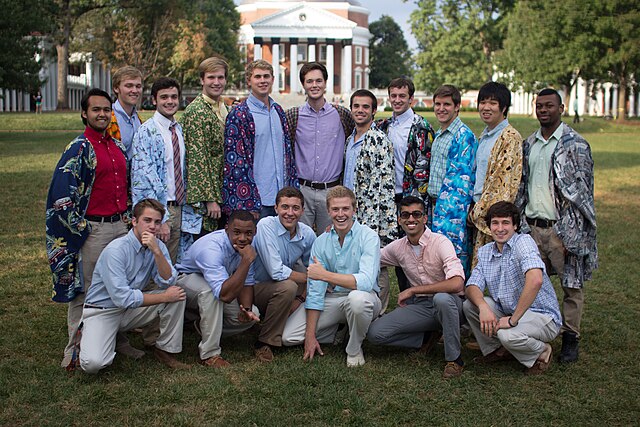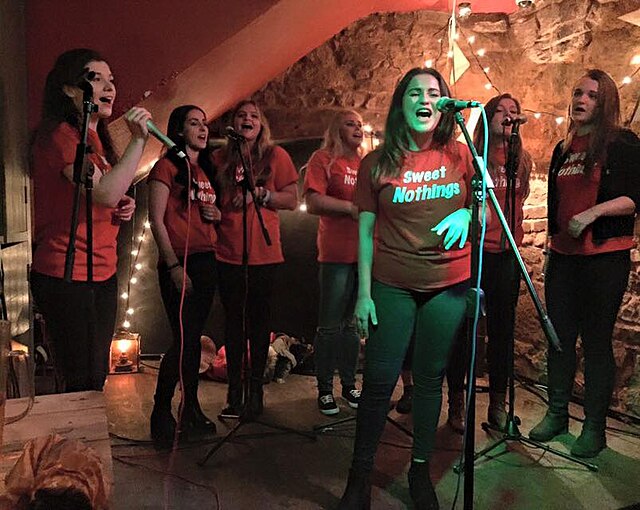Barbershop vocal harmony, as codified during the barbershop revival era (1930s–present), is a style of a cappella close harmony, or unaccompanied vocal music, characterized by consonant four-part chords for every melody note in a primarily homorhythmic texture. Each of the four parts has its own role: generally, the lead sings the melody, the tenor harmonizes above the melody, the bass sings the lowest harmonizing notes, and the baritone completes the chord, usually below the lead. The melody is not usually sung by the tenor or baritone, except for an infrequent note or two to avoid awkward voice leading, in tags or codas, or when some appropriate embellishment can be created. One characteristic feature of barbershop harmony is the use of what is known as "snakes" and "swipes". This is when a chord is altered by a change in one or more non-melodic voices. Occasional passages may be sung by fewer than four voice parts.
The Dapper Dans barbershop quartet, at Disneyland's Main Street, USA
WPA poster, 1936
Rönninge Show, the highest ever scoring Sweet Adelines International barbershop chorus.
Music performed a cappella, less commonly spelled a capella in English, is music performed by a singer or a singing group without instrumental accompaniment. The term a cappella was originally intended to differentiate between Renaissance polyphony and Baroque concertato musical styles. In the 19th century, a renewed interest in Renaissance polyphony, coupled with an ignorance of the fact that vocal parts were often doubled by instrumentalists, led to the term coming to mean unaccompanied vocal music. The term is also used, rarely, as a synonym for alla breve.
A cappella
The Hullabahoos, an a cappella group at the University of Virginia, were featured in the movie Pitch Perfect
The Oxford Alternotives, the oldest a cappella group at the University of Oxford in the UK
The Sweet Nothings are one of the University of Exeter's eight a cappella groups. They are one of the oldest and most successful girl groups in the UK







